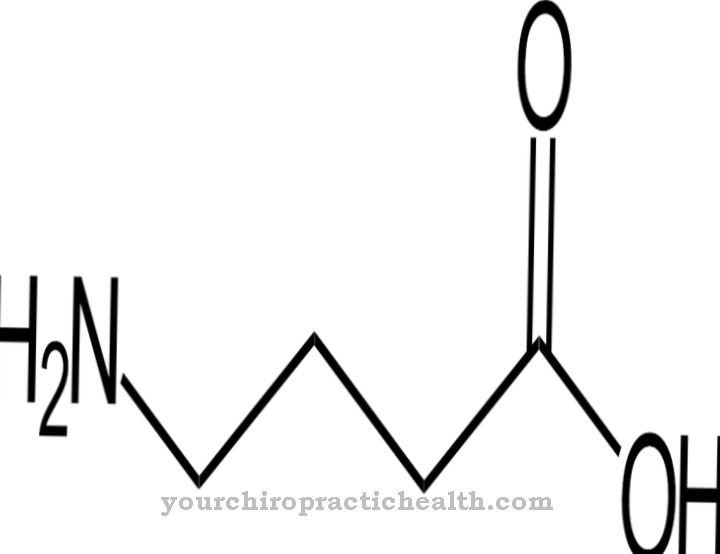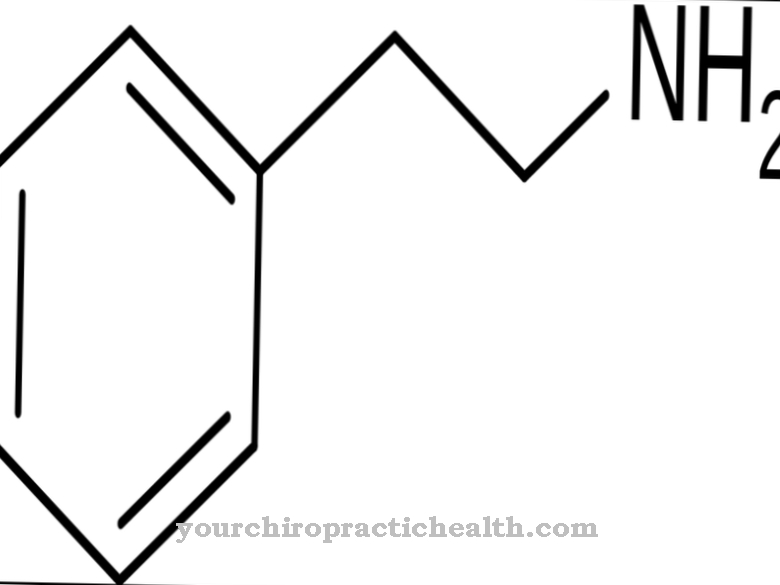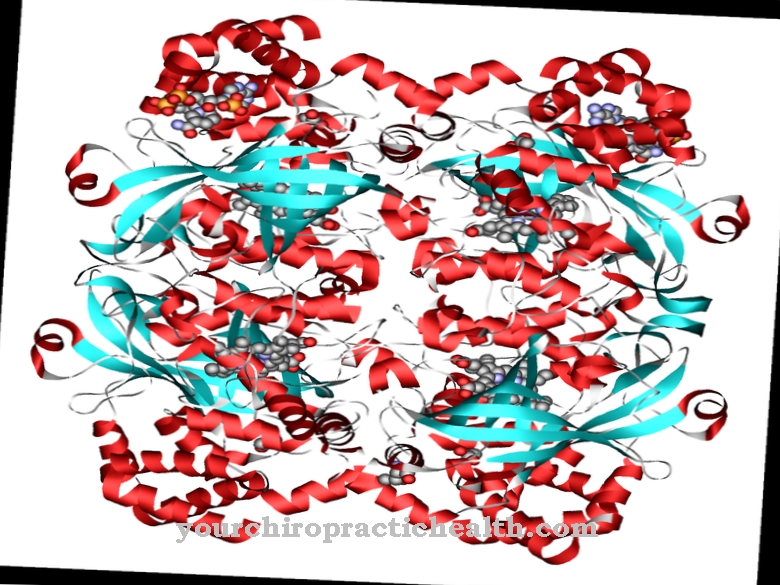Serotonin is a hormone that is active in the central nervous system. It is involved in a multitude of processes in the body, for example it has an impact on the perception of pain, memory, sleep and sexual behavior as well as a person's emotional state.
What is Serotonin?
Serotonin is an important messenger substance (neurotransmitter) and a tissue hormone in the body. It occurs, for example, in the blood, in the stomach and intestinal tract, in the central nervous system and in the cardiovascular system.
Neurotransmitters work in the nerve cells. There they meet receptors and trigger various functions and reactions. Serotonin was discovered in the body at the end of the 1940s and has been studied intensively ever since.
The messenger substance is very widespread in nature: In addition to the human organism, fungi, plants and even amoebas also produce the messenger substance.
Functions, tasks & meanings
Serotonin has a multitude of functions and tasks in the human organism. The most Serotonin occurs in the gastrointestinal tract. There it regulates the important intestinal movements (peristalsis) that are necessary to digest food. In some cases, the serotonin in the gastrointestinal tract can cause nausea and vomiting. The neurotransmitter also transmits pain stimuli that arise from complaints in this area to the brain.
Serotonin can also be found in human blood. This is absorbed by the blood platelets from the vessels of the intestine. In the blood, serotonin has the function of constricting blood vessels. This is important, for example, when bleeding occurs. The narrowing of the blood vessels helps blood clot so that the body can stop bleeding more quickly. In the eye, serotonin regulates intraocular pressure.
The neurotransmitter is produced in the brain and therefore occurs in the central nervous system. There, serotonin fulfills a wide variety of tasks and controls a variety of processes. For example, it regulates sleeping and waking behavior, body temperature, appetite, sexual behavior and the sensation of pain. One of the best-known effects of serotonin is its effect on the human mood. Depression can be caused by a lack of serotonin, but anxiety and aggression can also occur.
Illnesses, ailments & disorders
Not just a shortage, but an excess of it Serotonin can lead to a wide variety of complaints and disorders in the human body. In depression, there is often a serotonin deficiency in the human cerebrospinal fluid (liquor).
Drug therapy for depression uses so-called serotonin inhibitors, which prevent serotonin from being broken down too quickly, meaning that the body has more serotonin available. A lack of serotonin is also responsible for certain anxiety disorders and aggression. Its role as a neurotransmitter in the brain has to do with impulse control, among other things. If there is a deficiency, this chemical reaction can no longer take place correctly, so that the faults occur.
Serotonin is directly related to food intake. It has an appetite suppressant effect. In overweight people, the serotonin level in the brain is reduced. In patients with migraines, fluctuations in serotonin levels are observed before the pain attack, so that the neurotransmitter is directly related to this disease. The serotonin level drops sharply before the attacks.
In addition, scientists and doctors suspect that serotonin could be responsible for irritable bowel syndrome. However, this assumption has not yet been conclusively proven.
Some tumors lead to excess serotonin in the body. In this so-called carcinoid syndrome, the tumor produces serotonin. As a result of the excess of serotonin, high blood pressure, shortness of breath and diarrhea occur.
A possible cause of high blood pressure could be an impaired serotonin level. It has been proven that certain medications that affect serotonin levels can promote certain high blood pressure diseases such as pulmonary arterial hypertension.
Serotonin is found in many foods, such as bananas, pineapples, and walnuts. However, this serotonin absorbed through food cannot work in the brain, because the serotonin that enters the blood through food cannot cross the blood-brain barrier. Only the serotonin that is produced directly in the brain can also act there and in the central nervous system.
You can find your medication here
➔ Medicines to calm down and strengthen nerves



























